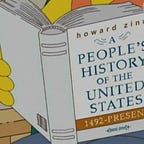Discourse on Colonialism by Aimé Césaire
This is one of the most scathing books I have ever read! Césaire pulled no punches as he tore apart the hypocrisy of Europe regarding colonialism and the turmoil it brought to the world. The absurdity of Britain, France, Portugal, Germany and the United States (plus the rest) have robbed and ravaged countries of their culture, people and resources. Such an incredibly rich text, I tend to dip into it when I need inspiration. So eloquent, so fiery, it offers so much. Written in the fifties, the message still rings true and is helped along by a scintillating introduction by Robin DG Kelley and an interview with Césaire offer invaluable context to the text and the man.
The Discourse is a declaration of WAR against the scourge of capitalism and colonialism, highlighting the contradictions and hypocrisy of Western “progress” and “civilisation”. These values are held up by the “West” as an example for all to see whilst also disrupting development and destroying the genuine aspirations of the people in countries across the world. Prior to and since the text was written there have been countless examples of people liberating themselves. India, China, Ghana and Cuba are all examples of decolonisation with varying degrees of longevity and success in resisting imperialism, but the one that Césaire holds up as an example is the Soviet Union…
It was refreshing to see the country represented in such a way as often I feel its contributions to the world are not given enough credit. Lifting millions out of poverty is no mean feat, especially when facing up against every country with any power as they try to murk you (Germany, the United Kingdom and the United States to name a few). Césaire considered the USSR to be a spectacular example of what is possible if the people seize power. Obviously, it wasn’t perfect but Western propaganda seems to blind people to the benefits the country brought to the world in its short life span of seventy years. Under constant internal and external pressure, the Soviet Union managed to house, feed and educate millions of people who previously lived in a state of abject poverty and alienation. The only time the United States did anything of half the ambition (with a lot more resources) was when otherwise faced with the prospect of a revolution of their own.
Aime Césaire could see all of this and much more in the 1950ss and it only becomes more clear as time goes on what an impact this decolonising endeavour had on the world. The balance of power in the world currently skews heavily towards the Washington Consensus and I believe that a shift in influence around the world would only be a good thing. The impact of colonialism is felt to this day and this discourse highlights it in numerous ways. It is a very short book but contains BIG ideas which will make anyone contemplate their place in the world and maybe even urge people to try and change it. That change won’t always go smoothly but attempts to make change, like the USSR, like Egypt, like Vietnam, all bring a greater understanding of what is possible to the forefront.
